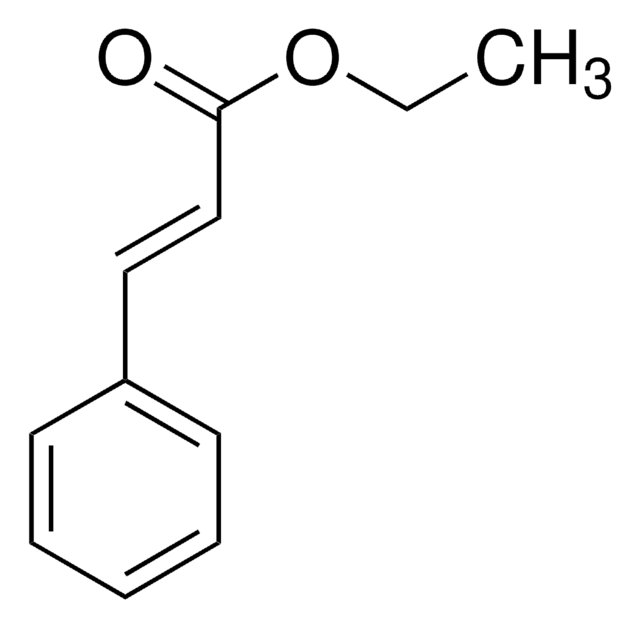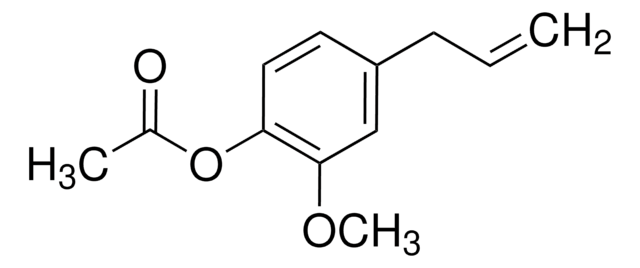W205915
Amyl butyrate
≥98%, FG
Synonym(s):
Pentyl butanoate, Pentylbutyrate
About This Item
Recommended Products
biological source
synthetic
Quality Level
grade
FG
Fragrance grade
Halal
Kosher
Agency
follows IFRA guidelines
meets purity specifications of JECFA
reg. compliance
EU Regulation 1223/2009
EU Regulation 1334/2008 & 178/2002
FDA 21 CFR 117
FDA 21 CFR 172.515
Assay
≥98%
refractive index
n20/D 1.41 (lit.)
bp
184-188 °C (lit.)
density
0.863 g/mL at 25 °C (lit.)
application(s)
flavors and fragrances
Documentation
see Safety & Documentation for available documents
food allergen
no known allergens
fragrance allergen
no known allergens
Organoleptic
banana; cherry; fruity; pineapple; sweet
SMILES string
CCCCCOC(=O)CCC
InChI
1S/C9H18O2/c1-3-5-6-8-11-9(10)7-4-2/h3-8H2,1-2H3
InChI key
CFNJLPHOBMVMNS-UHFFFAOYSA-N
Looking for similar products? Visit Product Comparison Guide
General description
Application
- RIFM fragrance ingredient safety assessment, amyl butyrate, CAS Registry Number 540-18-1.: This comprehensive review by the Research Institute for Fragrance Materials evaluates the safety of amyl butyrate, extensively used in flavor and fragrance industries, ensuring compliance with global health and safety standards (Api AM et al., 2020).
- Olfactory Receptors Modulate Physiological Processes in Human Airway Smooth Muscle Cells.: Amyl butyrate, along with other odorants, has been studied for its effect on olfactory receptors in human airway smooth muscle cells, providing insights into non-traditional therapeutic pathways for respiratory diseases (Kalbe B et al., 2016).
- Ultrasensitive flexible graphene based field-effect transistor (FET)-type bioelectronic nose.: Explores the high sensitivity of graphene-based sensors to volatile compounds like amyl butyrate for detecting odors, which could revolutionize diagnostic approaches and environmental monitoring (Park SJ et al., 2012).
- Polypyrrole nanotubes conjugated with human olfactory receptors: high-performance transducers for FET-type bioelectronic noses.: Discusses the use of amyl butyrate in enhancing the functionality of bioelectronic devices, contributing to the development of advanced sensors for various applications including health and safety monitoring (Yoon H et al., 2009).
Storage Class Code
10 - Combustible liquids
WGK
WGK 2
Flash Point(F)
152.6 °F - closed cup
Flash Point(C)
67 °C - closed cup
Choose from one of the most recent versions:
Already Own This Product?
Find documentation for the products that you have recently purchased in the Document Library.
Customers Also Viewed
Our team of scientists has experience in all areas of research including Life Science, Material Science, Chemical Synthesis, Chromatography, Analytical and many others.
Contact Technical Service











